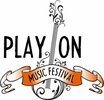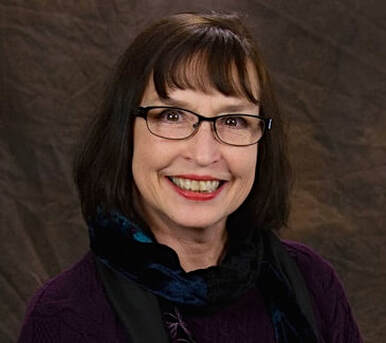
Dr. Ruth Ann Debrot (she/her) was born in Rockford, Illinois. A life-long learner, Debrot completed a BA in Music from The University of Mississippi. Debrot earned an MA in Vocal Performance at The City College of New York. After becoming a music educator, Debrot attended The Boston Conservatory and the University of Massachusetts Lowell, where she completed teacher certification in music education. Debrot obtained her level I teaching certification in Orff Schulwerk at the Eastman School of Music. Most recently Ruth earned a doctorate in Music Education from Boston University.
In addition to teaching and performing, Ruth is a well-known clinician and researcher. Debrot has presented her research at the Mayday Colloquium 29 and at The Desert Skies Symposium. Debrot is a featured clinician on the NAfME Academy: Professional Development Webinar Series. In addition, she has presented numerous workshops for the American Orff Schulwerk Association and has presented for the Cleveland, Connecticut, Florida, New England and New York Chapters of AOSA.
Publications include The Journal of Popular Music Education, The Arkansas Segue, The Orff Echo, MENC’s Spotlight on General Music, the Massachusetts Music Educators Journal and The Journal of the New England League of Middle Schools. Academic honors include the Lowell Mason Award, The SGMM Award for Excellence in General Music and The MMEA Distinguished Service Award.
Debrot has held university appointments at The City College of New York and University of Massachusetts Lowell. She currently serves as an adjunct professor at Boston University. A majority of Ruth’s time is spent as a full-time music specialist for the Sharon Public Schools in Massachusetts, where she joyfully teaches chorus, treble choir, a cappella, Xcaliber (a boys’ choir), general music and jazz band to students in grades six through eight.
In addition to teaching and performing, Ruth is a well-known clinician and researcher. Debrot has presented her research at the Mayday Colloquium 29 and at The Desert Skies Symposium. Debrot is a featured clinician on the NAfME Academy: Professional Development Webinar Series. In addition, she has presented numerous workshops for the American Orff Schulwerk Association and has presented for the Cleveland, Connecticut, Florida, New England and New York Chapters of AOSA.
Publications include The Journal of Popular Music Education, The Arkansas Segue, The Orff Echo, MENC’s Spotlight on General Music, the Massachusetts Music Educators Journal and The Journal of the New England League of Middle Schools. Academic honors include the Lowell Mason Award, The SGMM Award for Excellence in General Music and The MMEA Distinguished Service Award.
Debrot has held university appointments at The City College of New York and University of Massachusetts Lowell. She currently serves as an adjunct professor at Boston University. A majority of Ruth’s time is spent as a full-time music specialist for the Sharon Public Schools in Massachusetts, where she joyfully teaches chorus, treble choir, a cappella, Xcaliber (a boys’ choir), general music and jazz band to students in grades six through eight.
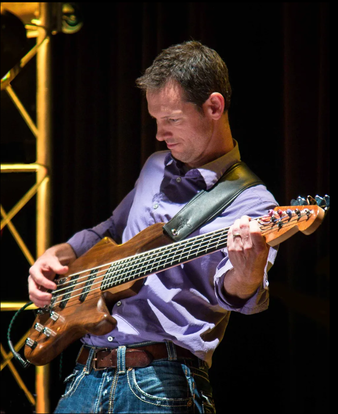
Steve Holley is a music educator/bassist/author living in Boston, MA. Steve holds a Ph.D. in Music Learning and Teaching from Arizona State University as well as a B.M. and an M.M. in Jazz/Classical Bass Performance from the University of Memphis.
As a teacher, Steve previously served as the Producer for the Commercial Music Program at the Kent Denver School outside Denver, CO, for nineteen years. During his tenure, the R&B, soul, salsa, and jazz bands of the CMP were recognized by DownBeat magazine’s Student Music Awards fifteen times. The bands performed hundreds of gigs in the U.S. and abroad, held standing gigs at local clubs, performed on dozens of radio and television broadcasts, recorded at some of the most hallowed studios in the country, and performed with dozens of Grammy-caliber artists.
As a bassist, Steve has recorded on over 100 studio projects and has played over 10,000 gigs across the world in every style of music imaginable.
As a writer, Steve authored the book Coaching a Popular Music Ensemble: Blending formal, non-formal, and informal approaches in the rehearsal and co-edited Action-based Approaches in Popular Music Education—a text featuring chapters from 26 experienced popular music educators discussing their teaching approaches to the popular music learning space.
Currently, Steve serves as the President of the Association for Popular Music Education. Steve and his family recently moved to Boston, MA, with their two rescue Boston Terriers, Matilda and Clementine.
As a teacher, Steve previously served as the Producer for the Commercial Music Program at the Kent Denver School outside Denver, CO, for nineteen years. During his tenure, the R&B, soul, salsa, and jazz bands of the CMP were recognized by DownBeat magazine’s Student Music Awards fifteen times. The bands performed hundreds of gigs in the U.S. and abroad, held standing gigs at local clubs, performed on dozens of radio and television broadcasts, recorded at some of the most hallowed studios in the country, and performed with dozens of Grammy-caliber artists.
As a bassist, Steve has recorded on over 100 studio projects and has played over 10,000 gigs across the world in every style of music imaginable.
As a writer, Steve authored the book Coaching a Popular Music Ensemble: Blending formal, non-formal, and informal approaches in the rehearsal and co-edited Action-based Approaches in Popular Music Education—a text featuring chapters from 26 experienced popular music educators discussing their teaching approaches to the popular music learning space.
Currently, Steve serves as the President of the Association for Popular Music Education. Steve and his family recently moved to Boston, MA, with their two rescue Boston Terriers, Matilda and Clementine.
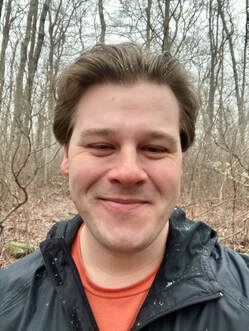
Theorizing education as a vital form of holistic healing and community care, Nicholas Patrick Quigley (they/he) teaches music and music technology at Resiliency Preparatory Academy and B.M.C. Durfee High School of Fall River, MA. Before teaching in Fall River’s public high schools, Quigley taught middle and elementary music in Fall River and Randolph, MA, and has facilitated music education coursework for Boston University. Their critical praxis is rooted in soil, leisure, and an understanding that sustainable, transformative, life-giving musicking is a universal birthright.
As an educator, Quigley has positively transformed the music programs in the schools where they have served. Teaching middle school music at Atlantis Charter School in Fall River, Quigley developed a creative music technology curriculum and established a guitar program. At Viveiros Elementary School in Fall River, they founded a ukulele program, acquired a full adaptive instrumentarium, and created expressive arts programming for the summer extended school year. At Donovan Elementary in Randolph, MA, Quigley piloted a program integrating social emotional learning with expressive musicking as part of selected students’ behavioral support systems and facilitated eco-conscious musicking in the district’s Summer Discovery Zone.
Nicholas has presented research and professional development for educators in school district settings and multiple academic conferences. Their research on DIY musicking and pedagogies centering on expressive arts integrations and trauma-informed teaching have appeared in the Journal of Popular Music Education, Massachusetts Music Educators Journal, and Teaching Music, respectively.
Quigley, a composer, producer, and guitarist, has released multiple records of classical chamber music, alternative songs, soundscapes, ambient guitar works, and electronica. Presently, Nicholas focuses on the transformative possibilities of space, meditating with guitars, propagation effects pedals, and sound walking.
As an educator, Quigley has positively transformed the music programs in the schools where they have served. Teaching middle school music at Atlantis Charter School in Fall River, Quigley developed a creative music technology curriculum and established a guitar program. At Viveiros Elementary School in Fall River, they founded a ukulele program, acquired a full adaptive instrumentarium, and created expressive arts programming for the summer extended school year. At Donovan Elementary in Randolph, MA, Quigley piloted a program integrating social emotional learning with expressive musicking as part of selected students’ behavioral support systems and facilitated eco-conscious musicking in the district’s Summer Discovery Zone.
Nicholas has presented research and professional development for educators in school district settings and multiple academic conferences. Their research on DIY musicking and pedagogies centering on expressive arts integrations and trauma-informed teaching have appeared in the Journal of Popular Music Education, Massachusetts Music Educators Journal, and Teaching Music, respectively.
Quigley, a composer, producer, and guitarist, has released multiple records of classical chamber music, alternative songs, soundscapes, ambient guitar works, and electronica. Presently, Nicholas focuses on the transformative possibilities of space, meditating with guitars, propagation effects pedals, and sound walking.
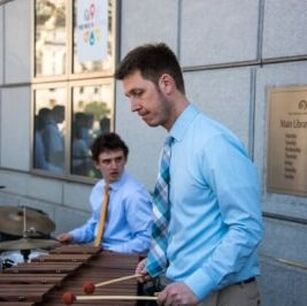
Tom Westmoreland (he/him) taught Instrumental Music in Massachusetts from 2004-2020. He earned his undergraduate degree in Music Education from James Madison University (Cum Laude) and a Master of Music Education from Boston University. He is currently a chair of the Massachusetts Music Educators Association's Diversity, Equity, Inclusion & Access Committee and Assistant Conference Chair, roles where he helps lead professional development for teachers across the state.
He and his husband own the Brasswood Inn in Provincetown, MA where they actively uplift diverse voices through their Porch Concert Series during the summer months.
He and his husband own the Brasswood Inn in Provincetown, MA where they actively uplift diverse voices through their Porch Concert Series during the summer months.
